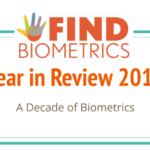Precise Biometrics has issued its Q1 report for 2018, and the results suggest the company is adapting well to pressures in the mobile biometrics market.
Precise Biometrics’ operating loss is down from a year ago, coming in at SEK -2.03 million, compared to -2.66 million in Q1 of 2017. And while many biometrics specialists have seen falling sales due to high competition and shrinking margins in the mobile fingerprint sensor market, Precise Biometrics’ sales are actually up year over year, at SEK 18.15 million compared to about SEK 16.62 million in Q1 of last year.
Of course, the mobile market isn’t Precise Biometrics’ only area of operation. Among the significant developments highlighted in the company’s Q1 report were the establishment of an extended licensing agreement with government-focused ID solutions provider Crossmatch, and the use of Precise Biometrics’ algorithm software in a major Visa-led trial of biometric payment cards – an area in which multiple fingerprint biometrics specialists are hoping to find big new opportunities over the coming years.
Even in the mobile sector, though, Precise Biometrics has adapted well. In his commentary on the Q1 results, Precise Biometrics Chairman Torgny Hellström noted that the company is taking advantage of new enthusiasm for in-display fingerprint sensors, having seen its technology embedded in the first smartphone to sport the feature. It’s now working with ten customers in this area, Hellström said, including Huawei with respect to its forthcoming Honor 10 smartphone. Meanwhile, it’s also working to take advantage of opportunities in the lower end of the smartphone market, too, as more and more devices incorporate low-cost capacitive sensors into their devices.
Looking ahead, Hellström says Precise Biometrics is “in a strong financial position”, and that he has “a continued positive view of the company’s outlook.”
–
May 15, 2018 – by Alex Perala






![INTERVIEW: Precise Biometrics’ Fredrik Sjoholm at Money20/20 Europe [AUDIO]](https://idtechwire.com/wp-content/uploads/HiRes6-150x150.jpg)
Follow Us